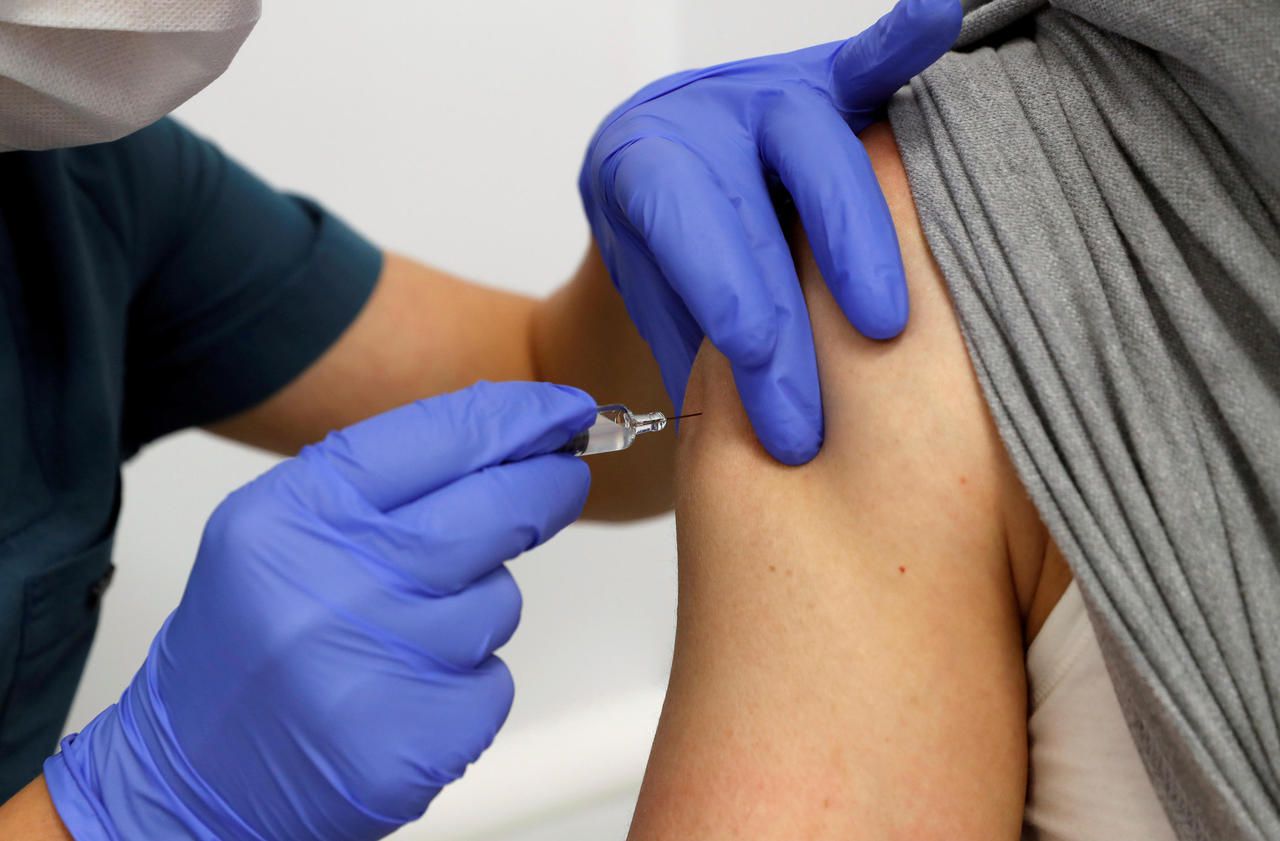A first in the world, which raises many questions.
The United Kingdom is expected to announce next week the launch of a trial in which voluntary and healthy citizens will be infected with SARS-CoV-2 in order to test the effectiveness of a vaccine against Covid-19 already injected into their homes. agency, according to the Financial Times.
Between 100 and 200 volunteers would then be placed in strict isolation and under surveillance for about 40 days.
All under the aegis of the prestigious Imperial College London.
Pending approval by the UK Medicines and Health Products Regulatory Agency and an independent research ethics board, the 1DaySooner collective has called for volunteers for such a " infectious challenge ”.
Around 2,000 people have already registered in the UK.
Shorten deadlines
“When we are faced with an unprecedented global threat, it is an ethical imperative to conduct well-controlled studies to help develop a vaccine and then identify the best of them,” Dominic Wilkinson told Financial Times, professor of medical ethics at the University of Oxford.
This could "advance science and allow us to better understand the disease," also boasted Professor Peter Horby, chairman of the government's advisory group on threats of new and emerging respiratory viruses (Nervtag), on BBC4.
READ ALSO>
Interruption of the anti-Covid vaccine trial: a blow to research?
Such an "infectious challenge" would be nothing new since the concept dates back to the year 1796, when Edward Jenner discovered vaccination by inoculating smallpox in another individual.
Its main advantage is that it greatly reduces the time needed to develop a vaccine.
Usually, tens of thousands of volunteers are enrolled for stage 3, the last but also the longest.
Half are prescribed a placebo and the other half a dose of the vaccine project.
They are then monitored for long months to see if the second group has been further protected.
As of March 31, three American doctors had suggested injecting the virus into healthy subjects to speed up the procedure.
“Obviously, exposing volunteers to this virus presents them with severe and possibly fatal risks.
But these studies, by accelerating the evaluation of vaccines, could significantly reduce the overall toll of the coronavirus, ”they wrote in The Journal of Infectious Diseases.
On May 6, the WHO was not opposed to the principle, while setting several "criteria to make (it) acceptable", including recruiting young subjects.
The "unfavorable" scientific council
Nothing like this is planned in France, at least for the moment.
In an opinion on vaccination issued on July 9, the Scientific Council said it was "unfavorable" to the "infectious challenge" in the case of SARS-CoV-2, in particular for ethical reasons.
"Even if the level of risk is low, we cannot rule out the possibility of an accident occurring in these volunteers, in the absence of proven curative therapies for Covid-19", wrote these experts responsible for advising the government.
Many other doctors and scientists believe that this goes against the very principle of medicine, which is to heal above all else.
Newsletter - Most of the news
Every morning, the news seen by Le Parisien
I'm registering
Your email address is collected by Le Parisien to enable you to receive our news and commercial offers.
Learn more
In addition, the results that would then be carried out on "young volunteers in good health" would "not be transposable to vulnerable people, the main targets of protection", also indicated the Scientific Council.









